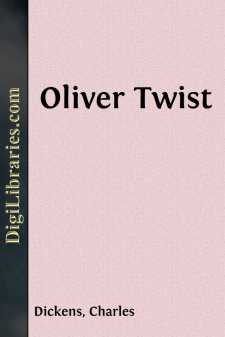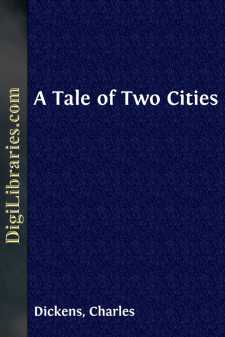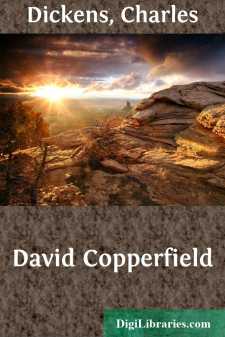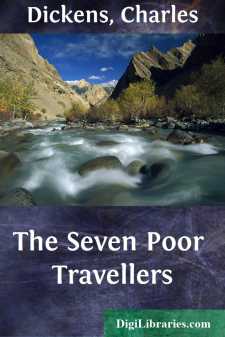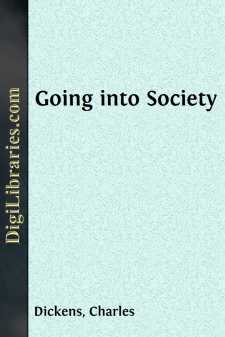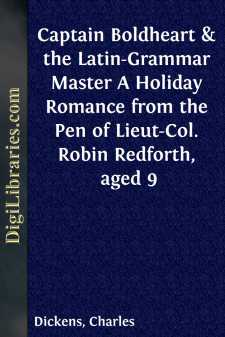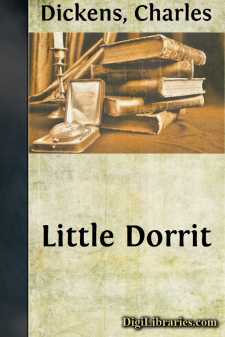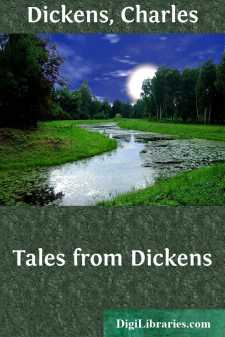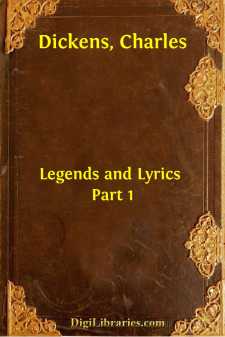Categories
- Antiques & Collectibles 13
- Architecture 36
- Art 48
- Bibles 22
- Biography & Autobiography 813
- Body, Mind & Spirit 142
- Business & Economics 28
- Children's Books 17
- Children's Fiction 14
- Computers 4
- Cooking 94
- Crafts & Hobbies 4
- Drama 346
- Education 46
- Family & Relationships 57
- Fiction 11829
- Games 19
- Gardening 17
- Health & Fitness 34
- History 1377
- House & Home 1
- Humor 147
- Juvenile Fiction 1873
- Juvenile Nonfiction 202
- Language Arts & Disciplines 88
- Law 16
- Literary Collections 686
- Literary Criticism 179
- Mathematics 13
- Medical 41
- Music 40
- Nature 179
- Non-Classifiable 1768
- Performing Arts 7
- Periodicals 1453
- Philosophy 64
- Photography 2
- Poetry 896
- Political Science 203
- Psychology 42
- Reference 154
- Religion 513
- Science 126
- Self-Help 84
- Social Science 81
- Sports & Recreation 34
- Study Aids 3
- Technology & Engineering 59
- Transportation 23
- Travel 463
- True Crime 29
Charles Dickens
Charles Dickens was a renowned English writer and social critic, born on February 7, 1812, and is celebrated for his vivid characters and depictions of Victorian society. Among his most famous works are "A Tale of Two Cities," "Oliver Twist," and "Great Expectations," which continue to be widely read and studied today. Dickens' literature often highlighted social injustices and the plight of the poor, contributing significantly to social reform in 19th-century England.
Author's Books:
Sort by:
by:
Charles Dickens
CHAPTER I Among other public buildings in a certain town, which for many reasons it will be prudent to refrain from mentioning, and to which I will assign no fictitious name, there is one anciently common to most towns, great or small: to wit, a workhouse; and in this workhouse was born; on a day and date which I need not trouble myself to repeat, inasmuch as it can be of no possible consequence to the...
more...
by:
Charles Dickens
I. The PeriodIt was the best of times,it was the worst of times,it was the age of wisdom,it was the age of foolishness,it was the epoch of belief,it was the epoch of incredulity,it was the season of Light,it was the season of Darkness,it was the spring of hope,it was the winter of despair,we had everything before us, we had nothing before us, we were all going direct to Heaven, we were all going direct...
more...
by:
Charles Dickens
CHAPTER 1. I AM BORN Whether I shall turn out to be the hero of my own life, or whether that station will be held by anybody else, these pages must show. To begin my life with the beginning of my life, I record that I was born (as I have been informed and believe) on a Friday, at twelve o'clock at night. It was remarked that the clock began to strike, and I began to cry, simultaneously. In...
more...
by:
Charles Dickens
CHAPTER I—IN THE OLD CITY OF ROCHESTER Strictly speaking, there were only six Poor Travellers; but, being a Traveller myself, though an idle one, and being withal as poor as I hope to be, I brought the number up to seven. This word of explanation is due at once, for what says the inscription over the quaint old door? RICHARD WATTS, Esq.by his Will, dated 22 Aug. 1579,founded this Charityfor Six...
more...
by:
Charles Dickens
DOCTOR MARIGOLD I am a Cheap Jack, and my own father’s name was Willum Marigold. It was in his lifetime supposed by some that his name was William, but my own father always consistently said, No, it was Willum. On which point I content myself with looking at the argument this way: If a man is not allowed to know his own name in a free country, how much is he allowed to know in a land of...
more...
by:
Charles Dickens
GOING INTO SOCIETY At one period of its reverses, the House fell into the occupation of a Showman. He was found registered as its occupier, on the parish books of the time when he rented the House, and there was therefore no need of any clue to his name. But, he himself was less easy to be found; for, he had led a wandering life, and settled people had lost sight of him, and people who plumed...
more...
by:
Charles Dickens
FOREWORD The story contained herein was written by Charles Dickens in 1867. It is the third of four stories entitled "Holiday Romance" and was published originally in a children's magazine in America. It purports to be written by a child aged nine. It was republished in England in "All the Year Round" in 1868. For this and four other Christmas pieces Dickens received £1,000....
more...
by:
Charles Dickens
CHAPTER 1. Sun and Shadow Thirty years ago, Marseilles lay burning in the sun, one day. A blazing sun upon a fierce August day was no greater rarity in southern France then, than at any other time, before or since. Everything in Marseilles, and about Marseilles, had stared at the fervid sky, and been stared at in return, until a staring habit had become universal there. Strangers were stared out of...
more...
by:
Charles Dickens
CHARLES DICKENS Charles John Huffham Dickens, the master story-teller, was born in Landport, England, February 7, 1812. His father was a clerk in one of the offices of the Navy, and he was one of eight children. When he was four years old, his father moved to the town of Chatham, near the old city of Rochester. Round about are chalk hills, green lanes, forests and marshes, and amid such scenes the...
more...
by:
Charles Dickens
AN INTRODUCTION BY CHARLES DICKENS In the spring of the year 1853, I observed, as conductor of the weekly journal Household Words, a short poem among the proffered contributions, very different, as I thought, from the shoal of verses perpetually setting through the office of such a periodical, and possessing much more merit. Its authoress was quite unknown to me. She was one Miss Mary Berwick, whom...
more...


